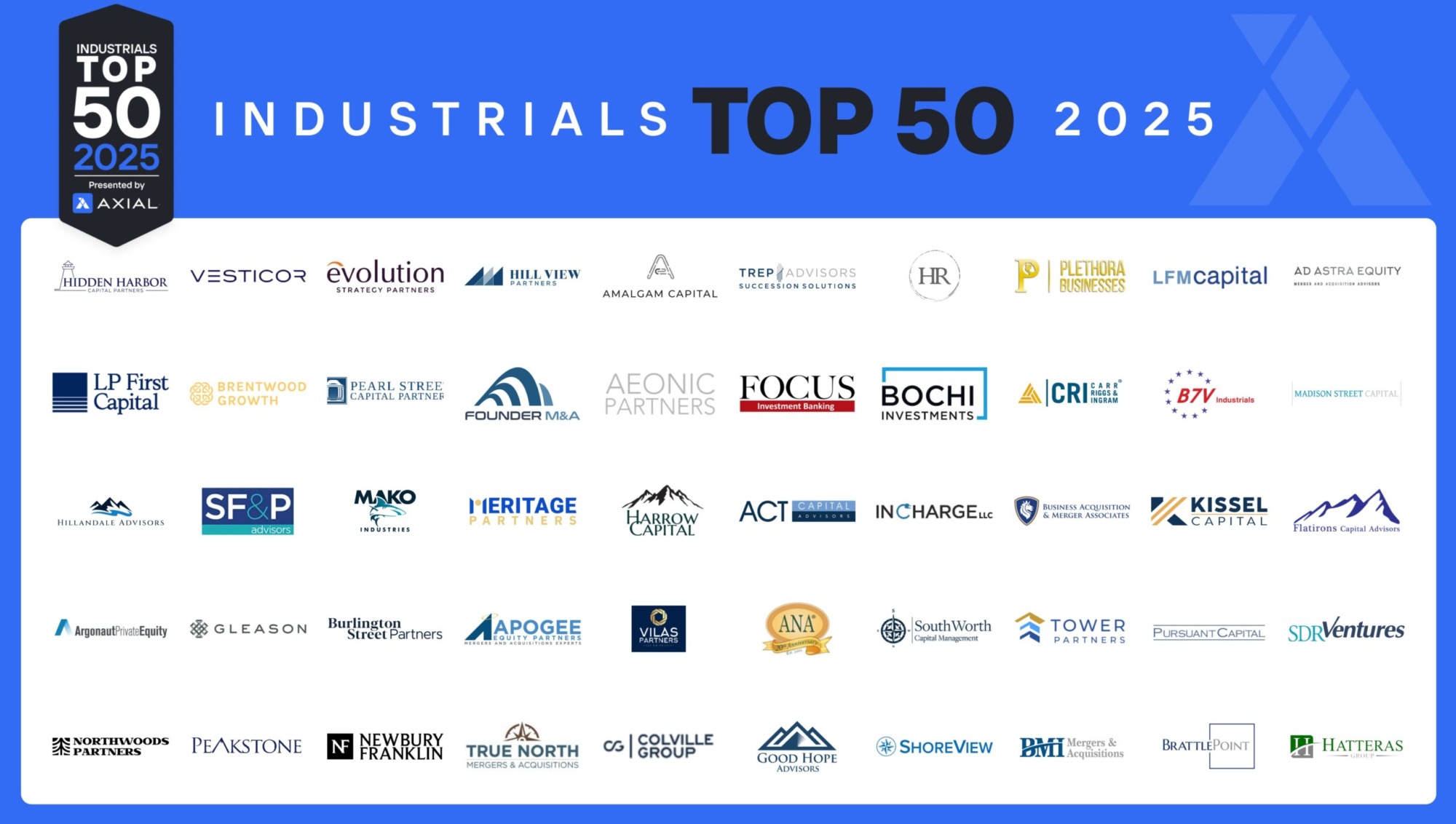
The Top 50 Lower Middle Market Industrials Investors & M&A Advisors [2025]
Industrials remains the most dominant sector in Axial deal flow, representing more than 25% of all deals brought to market…
Stone Road Capital Partners is an independent sponsor founded in 2013. Bill Overbay, a partner with the firm, previously held corporate development roles in the technology infrastructure and pharmaceutical industries. We talked to Bill about Stone Road’s thesis-driven approach to investing, how they source and evaluate deals, and more.
Tell me about Stone Road’s investment interests.
We are thesis-driven investors. Specifically, we focus on consolidating industries where there’s a natural reason for a transaction to occur. We like necessary consumables — for example, we have a portfolio business in the heating oil and propane space that has a large presence in the Northeast. You have to heat your home in the Northeast in the winter.
Typically, we look at multi-generational industries, where the business has typically been passed down through the generations but now there’s no one left to take over the business, because the next generation isn’t interested in that same lifestyle.
What size companies are you looking for?
We’re interested in the lower middle market. Our broad range is anything under $10 million in EBITDA. Anything larger than that and we’ll see people creeping down-market who we probably won’t compete well with.
For add-ons, we’ll pretty much do anything. We did a deal that had an enterprise value of $600,000 last month. As an independent sponsor rather than a fund, we enjoy rolling our sleeves up and doing that first wave of consolidation, especially, since we know that there are regional players or larger publicly traded companies who will be interested in an acquisition once we’ve scaled the business.
What does the process of evaluating an investment look like for you?
Since we’re thesis-driven, we take a sufficient enough time to thoroughly figure out and deeply understand our next investment opportunity. We really take the time to understand any industry we’re thinking about entering to make sure we develop strong relationships and can add significant value to any investment.
We really want to know what makes for a good company in a particular space. We spend a lot of time getting to know the state trade organizations and the accountants, lawyers, and bankers who serve an industry. We buy a lot of coffee for people and pick their brains. We go to the trade shows, meet the vendors, and do a lot of listening.
Then we start building a checklist of the ideal company’s characteristics. This is what we use when evaluating potential deals. We also want to make sure to think about what a natural exit would look like for us — we’re long-term investors, but we’re not going to hold a company forever.
Does all this research and networking double as business development?
Definitely — part of this is also a deal flow tool. Hopefully we’ve done our work well so that when we start reaching out to companies, people know us and trust us.
We use Axial to get a broad sweep of the market as well to provide us a really good cross-section of what’s out there and what’s going on in various regions throughout the country. For instance, one of our theses is the pending infrastructure renaissance that we all know needs to occur in the US. As part of our view, we targeted specific industries that should most benefit from this capital upswing and have been focusing on several sub-industries including road-milling, structural steel, traffic safety and ready-mixed concrete in areas with strong MSA profiles. Through several targeted queries on Axial,we were able to uncover and recently acquire a ready-mixed concrete company based in Texas.
As an independent sponsor, how do you think about finding financing partners?
We’re very deliberate about who our partners are. Just like looking for acquisitions, we take a long time to build out a robust database of relationships with lots of different folks. We diligence them and spend a lot of time talking to them and showing them how we think about opportunities.
This requires upfront work, but it pays off. For example, recently we were expanding our heating oil business and needed to take on a junior capital provider. There was a group that we’d spent three years getting to know, and we knew this deal would be a good fit for them. We were able to pick up the phone, explain our need, and quickly close .
What do you like about being an independent sponsor?
There’s so much flexibility. We may stumble across a company or subsector as we’re doing research on a thesis and say, “Wow, we didn’t even know this existed.” And we can then follow that lead and see where it takes us without worrying that the clock is ticking on the fund lifecycle.
